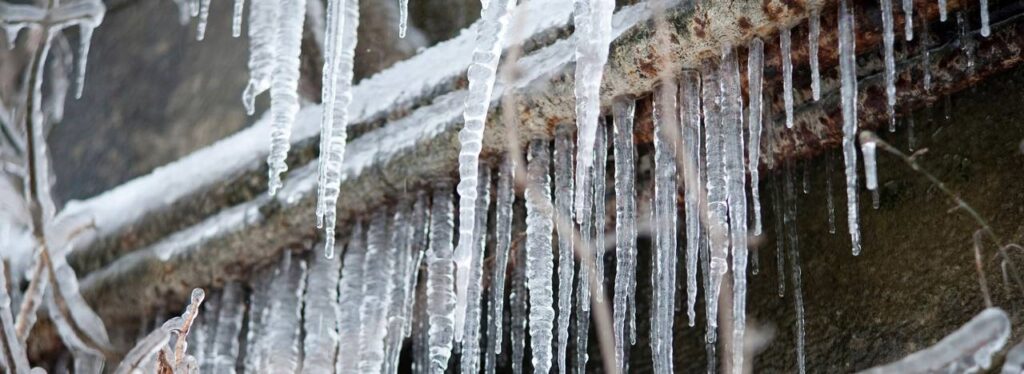Do you find yourself looking for ideas involving How to prepare your home plumbing for winter weather?

Winter can wreak havoc on your plumbing, especially by freezing pipelines. Below's how to prevent it from occurring and what to do if it does.
Introduction
As temperature levels decrease, the danger of icy pipelines boosts, potentially resulting in expensive repair work and water damage. Recognizing exactly how to stop icy pipelines is important for property owners in cold environments.
Recognizing Icy Pipelines
What triggers pipelines to ice up?
Pipelines ice up when revealed to temperature levels listed below 32 ° F (0 ° C) for prolonged periods. As water inside the pipes freezes, it expands, putting pressure on the pipeline wall surfaces and possibly causing them to burst.
Threats and problems
Icy pipelines can bring about water system disruptions, property damage, and costly fixings. Ruptured pipes can flood homes and cause comprehensive architectural damage.
Indications of Frozen Water Lines
Recognizing icy pipelines early can avoid them from rupturing.
Exactly how to determine frozen pipes
Search for reduced water flow from taps, unusual odors or sounds from pipelines, and noticeable frost on revealed pipelines.
Prevention Tips
Protecting susceptible pipes
Cover pipes in insulation sleeves or use warmth tape to secure them from freezing temperatures. Focus on pipelines in unheated or outside areas of the home.
Home heating techniques
Keep indoor spaces adequately heated, specifically locations with pipes. Open cabinet doors to allow cozy air to circulate around pipelines under sinks.
Safeguarding Exterior Plumbing
Yard hoses and exterior taps
Separate and drain yard tubes before wintertime. Set up frost-proof faucets or cover exterior faucets with insulated caps.
What to Do If Your Pipes Freeze
Immediate activities to take
If you believe icy pipes, keep faucets available to relieve pressure as the ice melts. Use a hairdryer or towels soaked in warm water to thaw pipelines gradually.
Long-Term Solutions
Architectural changes
Take into consideration rerouting pipelines away from exterior wall surfaces or unheated locations. Add added insulation to attic rooms, basements, and crawl spaces.
Upgrading insulation
Buy high-quality insulation for pipelines, attic rooms, and walls. Appropriate insulation aids keep regular temperature levels and minimizes the danger of frozen pipes.
Verdict
Stopping frozen pipes calls for positive actions and quick feedbacks. By understanding the causes, indications, and safety nets, home owners can secure their plumbing throughout winter.
Helpful Tips to Prevent Frozen Pipes this Winter
UNDERSTANDING THE BASICS: WHY PIPES FREEZE AND WHY IT’S A PROBLEM
Water freezing inside pipes is common during the winter months, but understanding why pipes freeze, and the potential problems it can cause is crucial in preventing such incidents. This section will delve into the basics of why pipes freeze and the associated problems that may arise.
THE SCIENCE BEHIND FROZEN PIPES
When water reaches freezing temperatures, it undergoes a physical transformation and solidifies into ice. This expansion of water as it freezes is the primary reason pipes can burst. As the water inside the pipe freezes, it expands, creating immense pressure on the walls. If the pressure becomes too great, the pipe can crack or rupture, leading to leaks and water damage.
FACTORS THAT CONTRIBUTE TO PIPE FREEZING
Low Temperatures: Extremely cold weather, especially below freezing, increases the risk of pipes freezing. Uninsulated or Poorly Insulated Pipes: Pipes located in unheated areas, such as basements, crawl spaces, or attics, are more prone to freezing. Insufficient insulation or lack of insulation altogether exacerbates the problem. Exterior Wall Exposure: Pipes running along exterior walls are susceptible to freezing as they encounter colder temperatures outside. Lack of Heating or Temperature Regulation: Inadequate heating or inconsistent temperature control in your home can contribute to frozen pipes. PROBLEMS CAUSED BY FROZEN PIPES
- Pipe Bursting: As mentioned earlier, the expansion of water as it freezes can cause pipes to burst, resulting in significant water damage.
- Water Damage: When pipes burst, it can lead to flooding and water damage to your property, including walls, ceilings, flooring, and personal belongings.
- Structural Damage: Prolonged exposure to water from burst pipes can compromise the structural integrity of your home, leading to costly repairs.
- Mold and Mildew Growth: Excess moisture from water damage can create a favorable environment for mold and mildew growth, posing health risks to occupants.
- Disrupted Water Supply: Frozen pipes can also result in a complete or partial loss of water supply until the issue is resolved.
WHY CERTAIN PIPES ARE MORE PRONE TO FREEZING
- Location: Pipes located in unheated or poorly insulated areas, such as basements, crawl spaces, attics, or exterior walls, are at higher risk of freezing.
- Exterior Pipes: Outdoor pipes, such as those used for irrigation or exposed plumbing, are particularly vulnerable to freezing as they are directly exposed to the elements.
- Supply Lines: Pipes that carry water from the main water supply into your home, including the main water line, are critical to protect as freezing in these lines can affect your entire plumbing system.
- Underground Pipes: Pipes buried underground, such as those connected to sprinkler systems or outdoor faucets, can be susceptible to freezing if not properly insulated.
https://busybusy.com/blog/helpful-tips-to-prevent-frozen-pipes-this-winter/

Do you appreciate reading about How to Prevent Your Pipes From Freezing? Create a review down below. We would be delighted to listen to your ideas about this review. We hope that you come back again before long. Enjoyed reading our entry? Please share it. Let someone else discover it. Thanks for being here. Kindly pay a visit to our website back soon.
Book Appointment